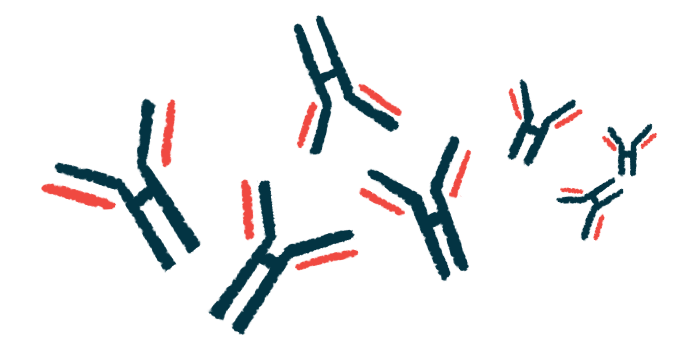Nektar to develop NKTR-0165 for MS, autoimmune diseases
Therapy developed under 2021 collaboration between Nektar, Biolojic Design
Written by |

NKTR-0165, an antibody that targets the tumor necrosis factor receptor type 2 (TNFR2), will continue to be developed by Nektar Therapeutics as a candidate for treating multiple sclerosis (MS) and other autoimmune diseases.
The experimental therapy was developed under a 2021 collaboration between Nektar and Biolojic Design, which set out to design and test antibodies that target the TNFR2 protein because of its involvement in several autoimmune conditions. The agreement included a license option for Nektar to proceed with studies on a selected candidate. The company has exercised that option and since December, Nektar has been advancing NKTR-0165 through early studies to support an investigational new drug (IND) application, which is a formal request to regulatory authorities to test a therapy in human clinical trials.
“We’re excited to be advancing NKTR-0165 through IND-enabling studies in 2024, with the goal of filing an IND in the first half of 2025,” Jonathan Zalevsky, PhD, Nektar’s chief research and development officer, said in a Biolojic press release.
If the drug progresses to clinical development, Biolojic is entitled to receive development milestones and sales royalties.
“We look forward to seeing Nektar advance this promising molecule through clinical development for the potential benefit of the many patients who suffer from autoimmune disease,” said Yanay Ofran, PhD, Biolojic’s CEO and founder.
What is NKTR-0165?
MS is caused by inflammatory damage to the myelin sheath, the protective coating around nerve fibers, which is driven by a number of immune cells, including T- and B-cells.
Immune cells called regulatory T-cells (Tregs) work to regulate the activity of the other immune cells to dampen excess inflammation. These cells also maintain immune tolerance, which is important for the immune system to recognize the body’s own cells and tissues as its own. But these cells are reduced in number and are functionally abnormal in MS. For this reason, increasing the activity of Tregs may be an effective therapeutic approach.
The collaboration between Nektar and Biolojic was designed to develop antibodies that target and activate the TNFR2 receptor, which is found at high levels on the surface of Tregs. Its activation has been shown to boost the cells’ activity.
As part of the collaboration, Biolojic used its computational and artificial intelligence expertise to develop several activators of the TNFR2 receptor and Nektar conducted cell and animal model experiments to test the candidates. NKTR-0165 was selected for further development.
“The unique agonist antibodies directed at TNFR2 are yet another demonstration of the power of Biolojic’s … platform for antibody design. Not only are these antibodies able to functionally activate TNFR2, they do so in a highly unique fashion,” Ofran said.



